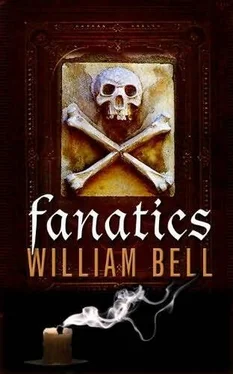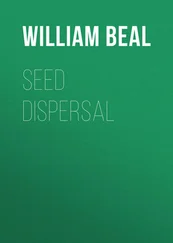“So,” RCMP summed up, “you had no idea that you had saved the lives of a couple of hundred people?”
“No.”
I had been afraid they’d grill me about Mom’s phone call to the cops, the one weak spot in my story. But she had said in her formal statement that she deduced the youth summit had been the terrorists’ target all along, and with the show opening that evening-which she knew about because her son’s girlfriend was stage manager-she alerted police out of caution. Her version of events sounded pretty thin to me, but she emphasized that we had to stick with it. I guessed it had satisfied them because my interview came to an end with no hint that they were sceptical of Mom’s version. In unison the three inspectors got to their feet, and when I followed suit they thanked me for coming and wished me a speedy recovery from my injuries.
Just as I turned toward the interview room door the CSIS inspector said, “It’s quite a coincidence, though, isn’t it?”
I almost laughed. How often had I seen this same ploy in detective movies? The bad guy thinks he’s fooled the detective with his lies. The polite cop thanks him and is about to leave when he stops, as if a stray thought has struck him. He turns and says to the suspect, “Oh, one more thing. It’s not important, but…” Then the bad guy, his guard down, spills the beans.
But I hadn’t told any lies. I turned back toward the three suits, stood silent and waited.
“Your mother is an investigative reporter,” CSIS went on. “She’s the one who broke the story about the Severn Ten. She appears to have a lot of information about them.”
“And here’s you,” RCMP continued, “the son, who just happened to be on hand to prevent the massacre.”
“Yeah, well, Orillia’s a small town,” I said, and walked out the door.
MOST OF THE KIDS I had gone to school with saw graduation as an escape hatch. They couldn’t wait to leave Orillia in their dust. For them it was a small town, practically a village, narrow and unexciting, with nothing new to offer. They had explored all its possibilities long ago, and living here was like being condemned everlastingly to read and re-read a dull book. As graduation neared they became restless, eager for a future that would be rosy only if it was lived somewhere else. I had been just as fidgety-not to get out of town but to get on with my plans for the future.
I liked the familiarity of Orillia’s streets and parks and lakes, the sense of being on well-known ground, a part of things. And on days like today, when the sunshine poured like honey out of a clear blue sky and the breeze from the lake carried the scent of vegetation, hinting of adventure, I only had to imagine myself slogging through the traffic-racket of Bay Street in Toronto, the skyscrapers forming a shadowy canyon where the funnelled wind flung grit and bits of fast-food wrappers into my face, to know I was where I wanted to be.
It was funny, in a way, the notion that drama and excitement only occur somewhere else. Raphaella and I had had our share of adventure and mystery-and fear-without leaving town, when we were caught in the fallout from events that happened near the African Methodist Church more than 150 years before. My scrape with the paintball terrorist was more proof-as if we needed it-that being a sleepy little town didn’t make Orillia immune from the wider world. And our unanticipated crash course in the Italian Renaissance fanatic, Savonarola, made the prospect of a one-day whirlwind bus tour of Florence, Italy, seem dull in comparison.
I thought those thoughts as I drove the van toward Wicklow Point to begin my first day back at work since Geneva Park. I hadn’t been able to ride the Hawk lately. My face was still too swollen and tender to fit inside my helmet, with its tight safety padding. I was glad to get back to my normal routine, and I was looking forward to making a start on the designs for the pieces commissioned by Derek and Liz. My unfinished task-the inventory-hung over my head like a cloud of mosquitoes, but I had to see it through, and I would, with Raphaella’s help and, I hoped, with out the interference of the spectre.
Getting rid of him permanently was another problem altogether.
I drove through the gate and down the shady lane to the shop and parked in the usual spot under the birches, then went to the back door and knocked.
“Good gracious!” exclaimed Mrs. Stoppini, wide-eyed and frozen in the doorway like a black mannequin, her bony hand on her cheek. For a split second she seemed unable to move, then she exploded into action, grabbing my arm and hauling me into the kitchen and bundling me into a chair. She slammed the door and alighted on the edge of a seat, staring at my face.
“I scarcely recognized you! What on earth-? Don’t tell me you have had an altercation!”
“An accident,” I fibbed. It was half true, I supposed. “I’m fine. I know I look awful, but-”
“Indeed!”
“I’m okay. Ready to get back to work.”
Over the inevitable cup of tea and brioche or two, and amid Mrs. Stoppini’s clucking and fussing and peering at my banged-up face, I told her about my new commission. I said I planned to spend the mornings working in the shop and would continue the inventory during the afternoons when, on most days, Raphaella would join me. Now that MOO was history, she had more time. She’d arranged to run the Demeter in the mornings and then come to the estate.
“Most satisfactory,” Mrs. Stoppini pronounced.
Before I went out to the shop I walked down the hall to the library, eager to see if there had been any changes over the past couple of weeks. The corridor was quiet, and for the first time in what seemed like ages, it smelled of floor wax rather than smoke. I took a quick peek inside the library doors. Everything seemed as we had left it, undisturbed. The room was quiet and almost, if I hadn’t known better, inviting.
I left the room and headed for the shop and my drawing board.
THE NEXT FEW DAYS passed without a ripple. The late-summer weather was hot and dry. The breeze off the lake flowed into the library as Raphaella and I toiled away, making good progress in the boring notation of book titles and authors’ names into the database. Once we had reached the alcove our progress had slowed to a crawl as we unshelved, examined, and noted the details Mrs. Stoppini required from every volume. We worked together, one dictating, the other typing.
At times we could barely detect the uniquely unpleasant smoky odour we had grown used to. On other days it was strong enough to be an almost physical presence. What all that signified, we didn’t know. The spectre never appeared and we didn’t complain.
Hanging over us was the unasked, unacknowledged question: What should we do when this assignment was complete? Walk away and say nothing about Savonarola? Casually tell Mrs. Stoppini, “We’re done. It was fun, and by the way, there’s a vicious ghost in your secret cupboard”? And speaking of the spectre, where was he, anyway? Why was he being so quiet these days?
Without having to give voice to our thoughts, we were certain that we were on track for a showdown.
And we were right.
AS IF IT WAS IN SYMPATHY with the mood inside the Corbizzi mansion, the weather turned unseasonably nasty. A cold front lumbered down from the north and soggy grey clouds rolled in over the lake and settled down for a long stay. Rain came and went on gusty winds, ticking drearily against the window glass. Raphaella and I talked about lighting a small fire to chase out the damp air and cheer up the place, and I had got as far as carting an armload of scrap wood in from the shop. But we decided the room was the wrong place for flames.
Читать дальше












